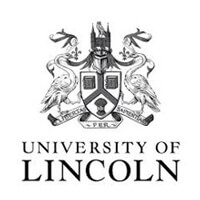fees waived
Mathematics, MMath, with industry placement
University of Lincoln, United Kingdom
Subject ranking
UK / Times 53rd
UK / Times 53rd
UK / Guardian 77th
Costs
food & rentS$16.8K / year
Entry requirements
Scholarships
4 available
Unlimited quantity
Unlimited quantity
Unlimited quantity
Unlimited quantity
Limited quantity
Limited quantity
Information
Code
Code
Intakes
Website (External)
Programmes
Information
Duration
2029
Course summary
The research-informed MMath Mathematics degree aims to provide a fundamental education in mathematics, including pure and applied mathematics. There will be opportunities for students to develop high-level mathematical and problem-solving skills and to apply these in a variety of contexts. Students will also have the chance to work alongside fellow undergraduates and academic staff on projects. The four-year MMath course is designed for those seeking to develop advanced mathematical skills. The first three years are common with the BSc (Hons) Mathematics course, while the fourth year offers the opportunity to study more advanced topics in greater depth. The MMath also gives students the opportunity to undertake a significant individual project. In the first year you have the chance to benefit from an additional three hours per week of problem solving tutorials. In addition, the School of Mathematics and Physics runs a tutor system for first year students, providing one hour weekly tutor sessions in small groups. The first three years are common with the BSc Mathematics; in the fourth year you are expected to progress to more advanced and in-depth topics, with a greater proportion of independent project work. You study a broad range of mathematical topics, comprising both compulsory and elective modules. For the most up to date module information, please visit the course page for this programme on our website. Some programmes provide you with the opportunity to focus your study in a particular area through optional modules. Timetabling arrangements may limit the availability of some optional modules to some students. As the options often reflect staff research interests, they may alter over time due to staff availability. The way students will be assessed on this course will vary for each module. It could include coursework, such as a dissertation or essay, written and practical exams, portfolio development, group work or presentations to name some examples. Throughout this degree, students may receive tuition from professors, senior lecturers, lecturers, researchers, practitioners, visiting experts or technicians, and they may be supported in their learning by other students.Modules
Assessment method
In the first year you have the chance to benefit from an additional three hours per week of problem solving tutorials. In addition, the School of Mathematics and Physics runs a tutor system for first year students, providing one hour weekly tutor sessions in small groups. The first three years are common with the BSc Mathematics; in the fourth year you are expected to progress to more advanced and in-depth topics, with a greater proportion of independent project work. You study a broad range of mathematical topics, comprising both compulsory and elective modules. For the most up to date module information, please visit the course page for this programme on our website. Some programmes provide you with the opportunity to focus your study in a particular area through optional modules. Timetabling arrangements may limit the availability of some optional modules to some students. As the options often reflect staff research interests, they may alter over time due to staff availability.
A local representative of University of Lincoln in Singapore is available online to assist you with enquiries about this course.

